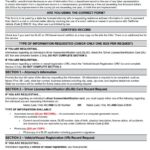Disclaimer: This blog post is for informational purposes only and does not constitute legal advice. For specific legal advice related to your situation, please consult with a qualified attorney.
Service through Notice and Acknowledgment of Receipt (Code Civ. Proc. § 415.30) is a favored method for serving a summons on parties known to be represented or those likely amenable to such service. This approach simplifies the need for extensive, costly efforts to personally serve the party.
The method is executed by:
– Communicating with the party’s representative (or the unrepresented party) to confirm their willingness to receive service on the party’s behalf.
– Sending a copy of the summons and complaint, along with two notices and acknowledgments of receipt, and a self-addressed, stamped envelope to the intended recipient.
– Requiring the recipient to complete, sign, and return one of the notices and acknowledgments.
Judicial Council Form POS-015 must be used as the Notice and Acknowledgment of Receipt as per Rules of Court § 1.31. Service is deemed complete on the signing date, which triggers any associated deadlines (e.g., a 30-day period to file a responsive pleading). Note that the deadline extension under Code of Civil Procedure section 1013 doesn’t apply here.
The recipient is given 20 days to complete and return the notice and acknowledgment. Failure to do so obliges the serving-party to pursue alternative service methods (e.g., personal, substitute, by publication). In this case, the serving-party becomes eligible to recoup costs, recoverable through a motion, independent of the underlying action’s merits or cost recovery.
Thus, this method effectively shifts the cost burden to the other party. However, it should be noted that the execution and return of an acknowledgment of receipt solely confirms receipt of the documents and does not imply proper service or general appearance. Furthermore, executing and returning the acknowledgment does not constitute consent to the court’s personal jurisdiction over the recipient or the individual accepting service on their behalf.





